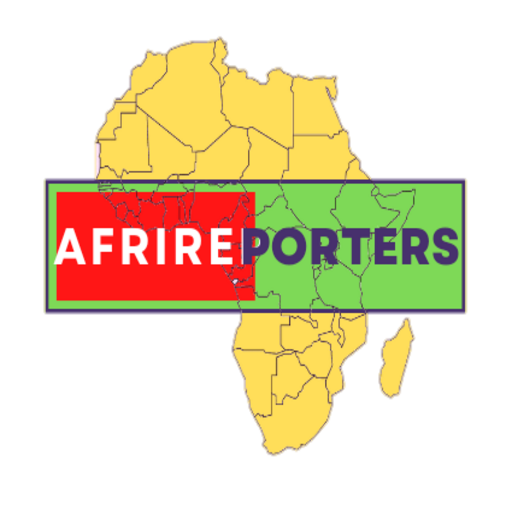.jpg)
Why We Demand Six Constitutional Amendments — MURIC
T
The Muslim Rights Concern (MURIC) has explained in detail why it is demanding six critical constitutional amendments from the Nigerian Senate.
In a press statement issued on Monday, July 7, 2025, the Islamic human rights organization laid out its concerns and recommendations, urging lawmakers to address decades-long religious inequalities and injustices embedded in Nigeria’s legal and administrative structures.
The group’s statement, signed by its Founder and Executive Director, Professor Ishaq Akintola, came on the heels of its presentation at the South West Zonal Public Hearing of the Senate Committee on Constitutional Amendments, which was held on Friday, July 5, and Saturday, July 6, 2025.
“We must start from the lanes of history because today was born from the wombs of yesterday,” MURIC said.
“Islam has been in Nigeria since the 11th century and the British met Islam on gthe round when they arrived in the 19th century (800 years later). The British did not deem it fit to observe the rules of natural justice when they colonized the country as all Islamic landmarks were eliminated and supplanted with a Christian system.”
According to the group, this colonial-era imbalance laid the foundation for many of the religious crises witnessed in post-independence Nigeria, as Muslim voices and concerns have been repeatedly ignored.
1. Imbalance in Public Holidays
MURIC pointed out that Nigeria currently observes eight national public holidays—five of which cater to Christians (Christmas, Boxing Day, New Year’s Day, Good Friday, Easter Monday), while only three cater to Muslims (Eid al-Kabir, Eid al-Fitr, and Maulid an-Nabiyy).
“The planned constitutional amendment should make the restructuring of Nigeria’s holidays mandatory so that 1st Muharram (Hijrah) can become officially recognized nationwide,” the group demanded.
2. Non-Recognition of Islamic Marriages
The organization decried the current status of Muslim marriages (Nikah), which are not recognized for official purposes in many institutions, unlike Christian marriages conducted in churches or registries.
“It is paradoxical that in a democracy, one marriage conducted by a religious group is acceptable while the other is not,” MURIC stated.
“We therefore propose a constitutional amendment revisiting the Nigerian Marriage Act (1990) to ensure that Islamic marriages are recognized in all official circles like Christian marriages.”
3. Demand for Friday as a Work-Free Day
MURIC further demanded the restoration of Friday as a work-free day, referencing its historical use as a weekend day before the British colonial government imposed Sunday.
“While we are not seeking anarchy, we are confident that the Federal Government has all the paraphernalia of administration to work out the modalities,” the group assured.
4. End to Religious Profiling in Identity Documentation
The statement highlighted ongoing discrimination faced by Muslims during biometric and identity registration for passports, national ID cards, and voter registration.
“Thousands of Muslims have been denied international passports, driving licences, and national identity cards while millions have been disenfranchised,” MURIC noted.
“The authorities must find a way of stopping the persecution and profiling of Muslims.”
5. Inclusive Uniform Policy
The group also demanded reforms to official uniforms in schools, the NYSC, security forces, and other sectors, noting that current uniforms are based on Christian colonial designs and do not accommodate Islamic dress codes.
“Western countries like Britain, Canada, and the United States have designed uniforms with hijab for their female Muslims. Nigeria should not lag behind.”
6. Establishment of Shariah Courts in the South West
Finally, MURIC demanded the establishment of Shariah Courts of Appeal in the South West, arguing that the clause “for any state that desires it” in Section 275 of the Constitution has been wrongly interpreted to deny Muslims their religious legal rights.
“Yoruba Muslims are now compelled to take civil matters like inheritance and marriage to Christo-Western courts. This is preposterous and unacceptable,” the group asserted.
“What we have on the ground is the contrary. Common law courts which are Christian-oriented are everywhere in Nigeria, including Kano, Maiduguri a,nd Sokoto—but Shariah courts are not allowed anywhere in the South. This is a violation of Allah-given fundamental rights of Southern Muslims.”
In its closing remarks, MURIC warned that continued denial of equal rights could threaten national unity.
“It amounts to undemocratic and tyrannical denial of access to the judiciary. This must change if the Nigerian nation acknowledges the existence of Muslims in the region. Otherwise, it becomes a huge existential challenge and a threat to peace whose consequences are unfathomable.”
The organization urged the Senate to act with fairness, inclusiveness, and justice in the ongoing constitutional amendment process.





~2.jpeg)














